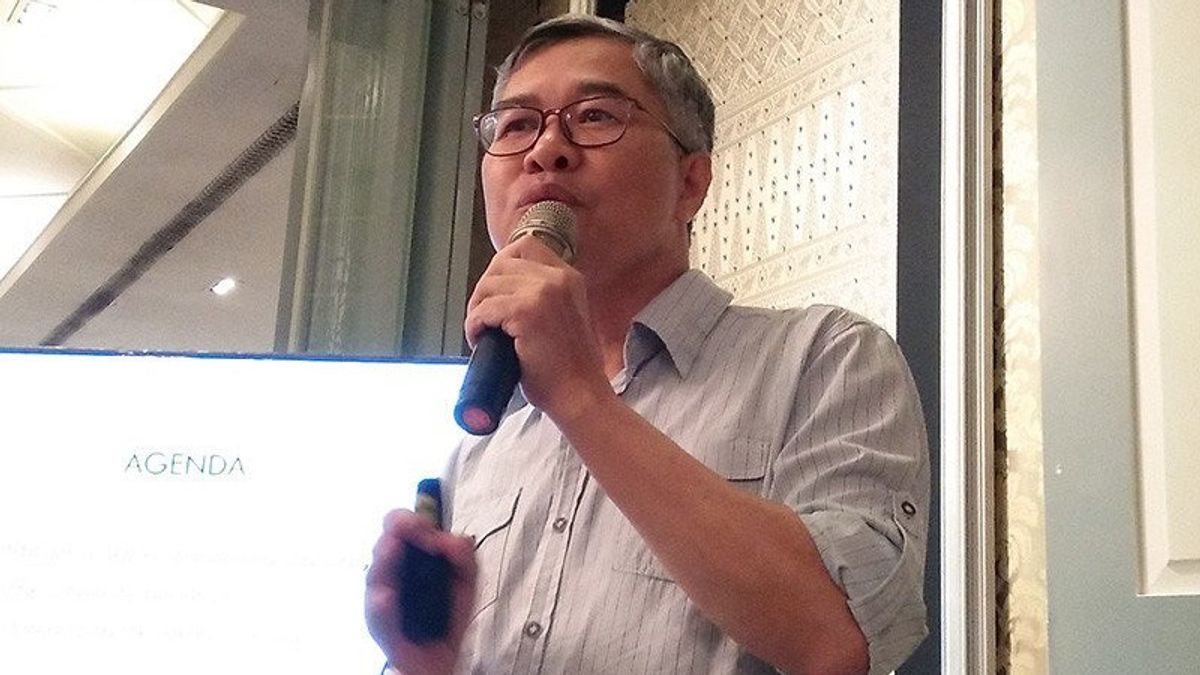JAKARTA - Segara Institute Executive Director Piter Abdullah revealed that the phenomenon of rising inflation towards the end of the year which coincided with the 2023 Christmas and New Year celebrations (Nataru) is a natural phenomenon.
However, he continued, to maintain a surge in inflation, coordination between the Central Inflation Control Team (TPIP) and the Region (TPID) is needed.
Piter said that inflation in Indonesia was mostly caused by supply and distribution factors.
Therefore, a slick cooperation between TPIP, TPID, government, and Bank Indonesia (BI) is the key to controlling inflation rates.
Piter said, so far the increase in inflation has been maintained. There was no spike that was too high.
This is because one of them is good coordination between the central and regional governments.
"With the existence of TPID and TPIP, the government and BI can work together to improve coordination to maintain supply and distribution properly. The result is that inflation has not soared even though subsidized fuel prices have been increased," he said, in Jakarta, Tuesday, November 29.
Not only that, said Piter, what should be done before Nataru is securing stock and distribution.
"To anticipate the surge in inflation during Nataru, I think the government can do the same, increasing coordination to maintain supply availability and distribution," he concluded.
Previously, Coordinating Minister for Economic Affairs Airlangga Hartarto conveyed directions regarding the TIPIP and TPID strategies in controlling inflation towards the end of the year.
"The government has requested that the Regional Government use regional funds, especially to support logistics, earlier there were several regions that had not used these funds. TPIP will make a letter, so that this can be used and then several things that become a note that in the future this inflation needs to be handled better so that our economic growth can be of quality. That can be achieved if inflation can be suppressed," said Airlangga, Friday, November 25.
Agricultural Infrastructure
Meanwhile, the Director of CELIOS (Center of Economic and Law Studies) Bhima Yudhistira said that the use of regional transfer funds in overcoming food inflation could be targeted at agricultural infrastructure development.
"There are regional transfer funds as well as village funds, just focus on agricultural infrastructure, don't build a gate or build development that has no direct impact on reducing inflation," said Bhima.
Several types of regional transfer funds include Village Funds and General Allocation Funds. The central government encourages local governments to use these funds for handling inflation in their regions.
"Infrastructure development at the regional level is important but is focused on agricultural infrastructure, for example irrigation, and roads for farmers' access to the market," he said. Bhima added, coordination between regions must run well so that the goal is achieved.
Bhima said, local governments through BUMD can cooperate with other regions to ensure food stocks run smoothly.
"For example, there are areas that have a food surplus or a big harvest, can be purchased by BUMDs in other areas. By coordinating with each other and closing the stock deficit, regional inflation can be controlled," explained Bhima.
In addition, said Bhima, to ensure farmers continue to produce, local governments need to help ensure the allocation of fertilizer subsidies is sufficient so that agricultural input costs can be lower.
"Farmers have been very sensitive about subsidized fertilizer stocks, if fertilizers are expensive, the selling price of agricultural products will also increase," he said.
The English, Chinese, Japanese, Arabic, and French versions are automatically generated by the AI. So there may still be inaccuracies in translating, please always see Indonesian as our main language. (system supported by DigitalSiber.id)








